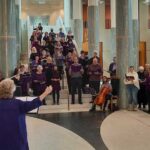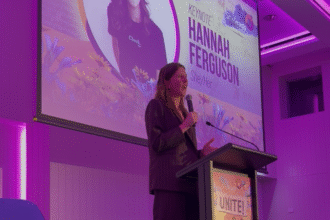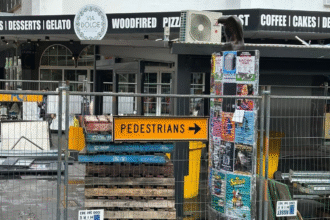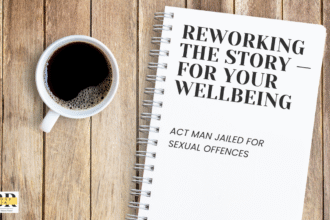In a city where bushfires, storms and heatwaves are part of our shared memory, Canberra’s resilience isn’t measured only in emergency responses, it’s in how we care for one another before, during and after the storm (both literally and figeratively).
Two local initiatives have just been recognised for doing exactly that, winning this year’s Resilient Australia ACT Awards for their focus on building strength and connection across the community.
The awards, managed by the Australian Institute for Disaster Resilience, celebrate projects that make communities safer, more prepared, and more able to recover from disruption. This year’s ACT winners; the Stormbirds Disaster Recovery Program and the ACT Disaster Resilience Strategy 2024–2030, both remind us that resilience isn’t just about sandbags and sirens. It’s about people.
Healing hearts after the storm
When disaster strikes, adults often rally to rebuild homes and infrastructure, but the emotional recovery of children can be harder to see and even harder to support. That’s where the Stormbirds Disaster Recovery Program comes in.
In 2024, Canberra Health Services funded the training of 41 child and family workers to deliver this wellbeing program to children aged 6–14 who have experienced natural disasters. It’s a simple, small-group model built on one powerful idea: that grief is a normal response to change and loss, and that it can be healed through connection.
Through schools, libraries, early learning centres and GP clinics, Stormbirds is creating safe spaces where children can talk, listen and rebuild a sense of security. What makes it remarkable is not just the program itself, but the network it has sparked, bringing together educators, counsellors and community workers to co-facilitate sessions across sectors.
In a city known for its rapid response to physical emergencies, Stormbirds is helping Canberra respond to the quieter aftershocks, the ones that linger in our hearts.
Planning for the next generation
The second award went to the ACT Government’s Disaster Resilience Strategy 2024–2030, the first of its kind in the Territory. Developed by the Justice and Community Safety Directorate, it represents a shift from viewing disasters as one-off events to understanding them as ongoing challenges that require whole-of-community preparedness.
The strategy embeds resilience across every policy area, from infrastructure to mental health, economy to environment, ensuring that emergency planning is no longer the sole responsibility of frontline agencies.
It was developed through extensive consultation and is already driving new partnerships between government, industry and community. But beyond the policy framework, it’s changing something more fundamental: how Canberrans see their role in protecting their own city.
Catherine King, Acting Executive Group Manager of the Security and Emergency Management Division, said,
“The ACT Disaster Resilience Strategy outlines what all of us can do to build resilience to disasters and make the ACT a safer place to live. We’re honoured to have received an award for this important work.”
From strategy to community strength
The truth is, resilience looks different depending on where you stand. For one family, it might be knowing their child’s school has support programs like Stormbirds. For another, it might mean feeling confident their local library, sports club or council is part of a coordinated plan if disaster hits.
Minister for Fire and Emergency Services, Dr Marisa Paterson, said it best: “It’s through collaborative efforts like these that we can truly build a stronger, more prepared Canberra. As the impacts of climate change become more evident, it is vital that we work together to prepare for and mitigate the effects of disasters.”
Her words reflect a shift many in the community already feel — that the future of Canberra’s safety depends not just on emergency services, but on everyday people, schools, workplaces and local networks learning how to adapt and support each other.
Why this matters for all of us
Resilience doesn’t mean pretending disasters won’t happen. It means preparing with compassion and foresight so that when they do, no one faces them alone.
Canberra has seen the power of community before — from neighbours who checked in during the 2003 bushfires to volunteers who helped shovel hail in 2020. The projects recognised this year are continuing that spirit, translating big policies into small moments of care that ripple across our city.
As these programs head to the national stage later this year, they remind us of something deeply local: resilience starts here, with us.
For more information on the 2025 Resilient Australia Awards, visit www.aidr.org.au/raa








